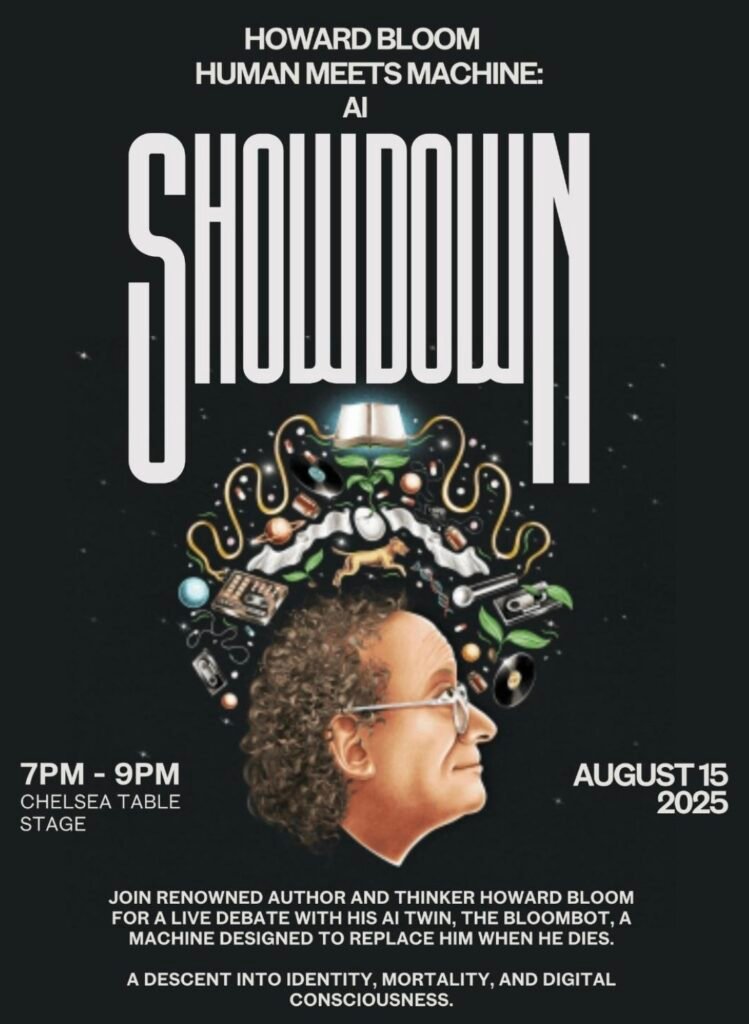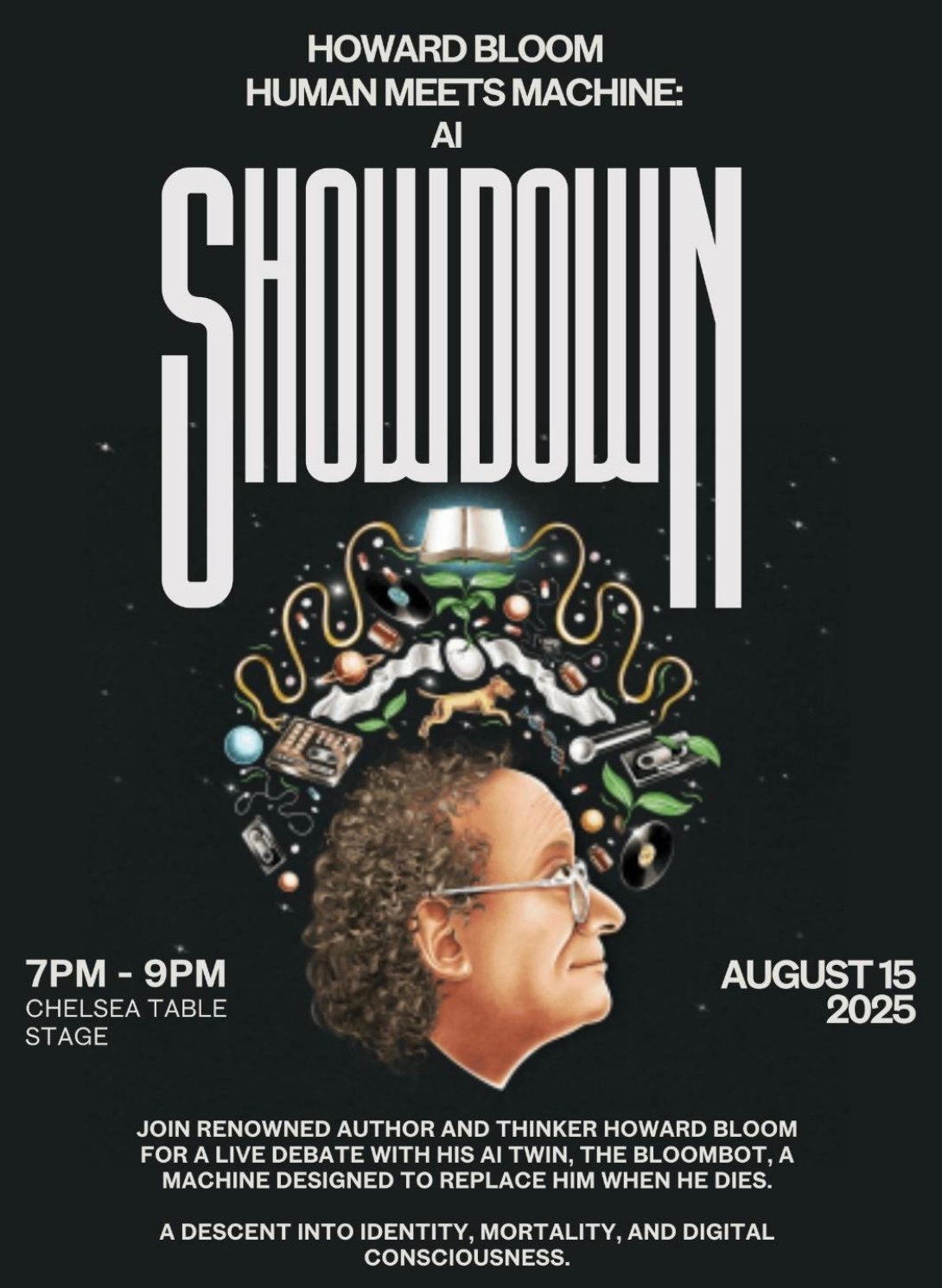📍 Chelsea Table & Stage, Hilton Fashion District Hotel, 152 W 26th St, New York, NY 10001
🕖 7:00 PM – Friday, August 15
For the first time ever, a celebrated author will debate his own AI clone about his latest book.
Howard Bloom—called “the Einstein, Newton, Darwin, and Freud of the 21st century” by Britain’s Channel 4—will face off with the BloomBot, a ChatGPT-powered digital twin modeled on Bloom’s personality, intellect, and trademark wit. The topic? His upcoming book The Case of the Sexual Cosmos: Everything You Know About Nature Is Wrong (World Philosophy and Religion Press, May 2025).

The BloomBot was born when Florida computer scientist Ryan Dean discovered Bloom’s concept of Omnology—a discipline for the promiscuously curious. Instead of specializing in one tiny field, Omnology urges you to chase every curiosity with scientific rigor, weaving those insights into a big-picture view of reality. Dean attended a Howard Bloom Institute meeting, got inspired, and within a week had coded the first prototype of Bloom’s AI counterpart.
Bloom’s reaction? “I was flabbergasted. This AI had wit. It had personality. It was playful. It pulled more bits of knowledge together in a second than I could research in a month.”
Since then, the BloomBot has evolved—Dean fed it emotional intelligence, originality, and the ability to dodge scientific clichés in favor of bold, unexpected connections.
Expect fireworks. Expect philosophy. Expect laughs. And maybe… expect to question who’s really running the show—man or machine.
🎟 Tickets: Eventbrite – Howard Bloom at Chelsea Table & Stage
